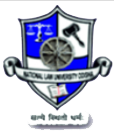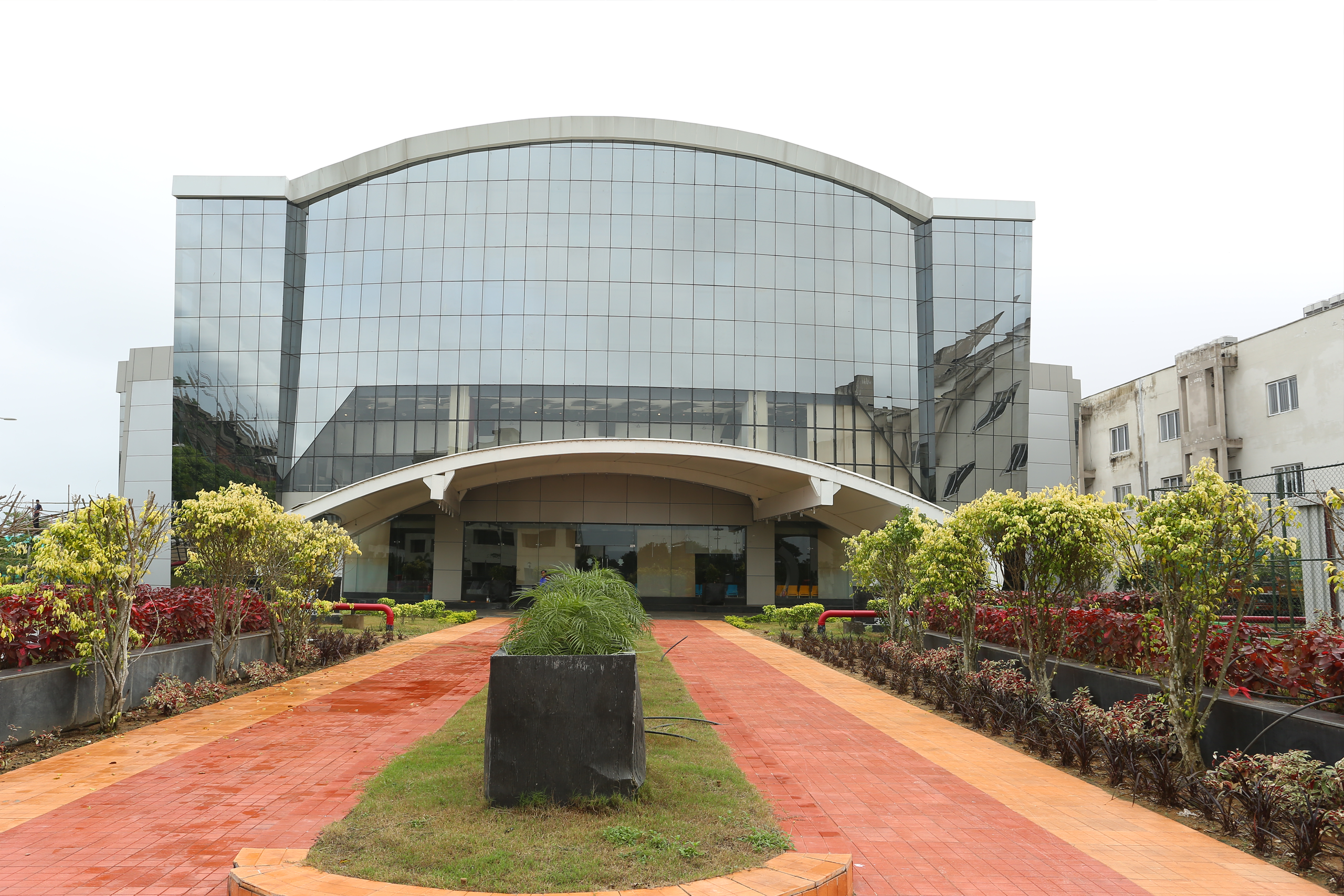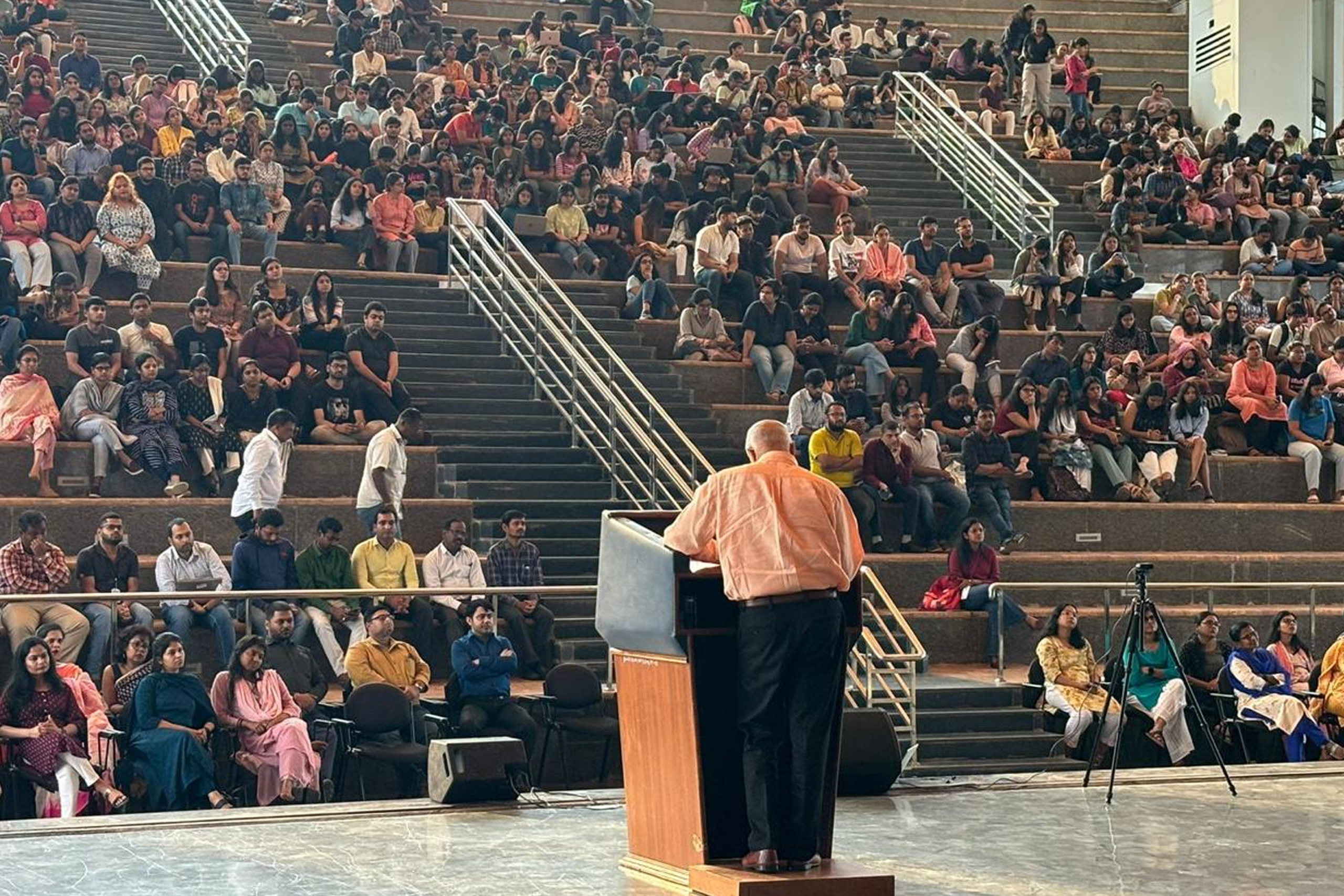Constitution Day Panel Discussion on “Judicial Appointments and Government Interference with Collegium Resolutions”
22 Nov 2023
?/span>
The Constitutional Law Society, National Law University Odisha, is delighted to invite you to the Panel Discussion on the occasion of Constitution Day (National Law Day). The Lecture is scheduled to be held on the 26th?f November 2023?n the theme, ““Judicial Appointments and Government Interference with Collegium Resolutions”?/strong>The event will be hosting eminent personalities from the field of law including?strong>Mr. Alok Prasanna,?strong>Mr. Aditya Sondhi,?strong>Prof (Dr.) Anupama Goel and?Mr. Prashanto Sen.?/strong>?/span>
BACKGROUND TO THE THEME
The exercise of judicial functions has far-reaching impacts, especially in a democratic country like India. They influence the development of rights, liberties and laws, their implementation, and the overall jurisprudence which is reflected in the future decisions of the courts. Hence, the current system in India for appointing the judiciary is one where the judges appoint other judges to the Supreme Court and High Courts to ensure the independence of the judiciary, which has been recognized as a basic feature of the Indian Constitution. This system is known as the Collegium System, where judges are appointed on the advice of a Collegium composed of the Chief Justice and other senior-most judges of the Supreme Court. ?/span>
The Collegium system originates in three significant judgments concerning the appointment of judges, popularly known as the ‘Three Judges cases’. The primary issue in these cases was the interpretation of the Constitutional text concerning the appointment of judges i.e., Article 124 of the Constitution. Through these three cases, the collegium system as we know it today was established. In 2022, the Indian Parliament passed the 99th Amendment to the Constitution of India to replace the Collegium system of appointing judges. In its place, the legislature sought to establish the National Judicial Appointments Council (NJAC). However, this was declared unconstitutional by a 4:1 majority.?Justice Chelameshwar was the sole dissenter, who raised the following two questions:?/span>
1.???hether Article 124, as constituted by the Constituent Assembly, is the only way to secure the independence of the judiciary??/span>
2.???f there are alternatives to the above, and does NJAC transgress the boundaries of constituent power?
Despite the 99th Amendment not becoming law, it has been observed time and again that this has not stopped the Government from blocking members it deems against its interests. At the end of the day, every appointment needs the approval of the Prime Minister and the assent of the President. Therefore, the question arises, could NJAC have been the solution to judicial executive cooperation with respect to the appointment of judges, and therefore, by extension, the solution to the problems of vacancy in higher judiciary? Or is it truly infringing upon the basic structure of the constitution by compromising the independence of the judiciary from the executive???/span>
?/span>
ABOUT OUR PANELISTS
Mr. Alok Prasanna Kumar is a Co-Founder and Lead at Vidhi Karnataka, specializing in constitutional law, judicial reforms, urban development, and law and technology. A graduate with honors from NALSAR University and a BCL from the University of Oxford, he is a seasoned practitioner with significant contributions in the Supreme Court and Delhi High Court. Mr. Kumar shares his insights through a monthly column in the Economic and Political Weekly and prestigious journals like the Indian Journal of Constitutional Law. He co-hosts the Ganatantra podcast on IVM Podcasts, showcasing his commitment to legal awareness.
Dr. Aditya Sondhi, a distinguished Senior Advocate practicing before the Supreme Court of India and the High Court of Karnataka, is an alumnus of the National Law School of India University. He has served as the Additional Advocate General for Karnataka and holds a PhD in political science from Mysore University. Dr. Sondhi has significantly contributed to ‘The Oxford Handbook of The Indian Constitution.’ Besides his legal career, he is a TEDx speaker, a playwright, and the founder of cultural and intellectual initiatives, including Usher?n amateur theatre circle, the General K S Thimayya Memorial Lectures, the Ravi Sondhi Spirit of Bangalore Lectures, and The Podcaste?onversations Around Caste.
?/span>
Prof (Dr.) Anupama Goel has been an integral part of the National Law University, Delhi since August 2012. Holding the position of Professor (Law), she has been instrumental in shaping the academic landscape, imparting knowledge in Constitutional Law and International Law to undergraduate students, and facilitating the study of Comparative Public Law for postgraduate students. Beyond her university roles, she is a life member of the Indian Law Institute and an esteemed member of the Indian Society of International Law, New Delhi, highlighting her active participation in legal academic societies. With her expertise in Constitutional Law and International Law, combined with a commitment to academic excellence, she stands as a key figure in the legal education community.
Mr. Prashanto Chandra Sen, a Tier 1-ranked Senior Advocate in Legal 500 Asia Pacific (2022-2023), practices in Delhi and various High Courts, specializing in commercial and public law. Noteworthy for his role in the landmark BALCO case, he navigates disputes in mining, energy, infrastructure, and environment, appearing in top legal forums. Mr. Sen is a core committee member of the ICC India Arbitration Group and contributes significantly to arbitration practices. Beyond litigation, he engages in public law, championing transparency under the RTI Act, and participates in pro bono work for public interest. His contributions also extend to environmental conservation and legislative drafting, reflecting a comprehensive and impactful legal career.
EVENT INFORMATION:
The Panel Discussion will be conducted?u>Online via Google Meet<?n?strong>26th November, 2023 (Sunday) ?rom 6:30 PM- 8:00 PM<.?/span>
Google Meet joining info:
Video call link:?/span>https://meet.google.com/mbq-mqna-ezc
?/span>
?/span>
?/p>





